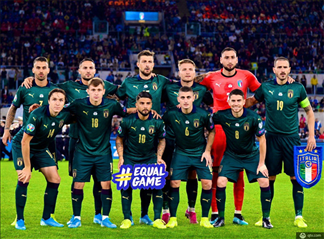According to CCTV5 program list (January 4, 2024), the 2023-24 European Football Championships, also known as the 2024 European Cup, is the 17th European Football Championships organized by the European Football Association Union. The European Cup will be held in Germany from June 14 to July 14, 2024
According to CCTV5 program list (January 4, 2024), the 2023-24 European Football Championships, also known as the 2024 European Cup, is the 17th European Football Championships organized by the European Football Association Union. The European Cup will be held in Germany from June 14 to July 14, 2024. This is the second time that Germany has hosted the European Cup since 1988, and it is also an opportunity for Germany to show the style of a football power again after the 2006 World Cup.
Germany is a traditional power in European football. It has won three World Cups and three European Cups. It is also an important driving force for European football. The organization, management, cultivation and innovation of German football are world-class. The German Football Association is one of the founding members of the European Football Association Union and the largest member association of the European Football Association Union. With more than 7 million registered members, it is the largest single sports association in the world.
On October 23, 2013, the German Football Association decided to bid for the 2024 European Cup. After years of preparation and competition, the European Football Association Union finally defeated Turkey, the only rival, by 12 votes to 4, at the executive committee meeting held in Neuchatel, Switzerland, on September 27, 2018, and successfully won the right to host the 2024 European Cup.
The German Football Association has prepared 10 host cities and 10 venues for the 2024 European Cup, including the Olympic Stadium in Berlin, Allianz Stadium in Munich, West Fallon Stadium in Dortmund, Feltins Arena in Gelsenkirchen, MHP Arena in Stuttgart, Hox Park Stadium in Hamburg, Mercury Entertainment Arena in Dusseldorf Rhine Energy Stadium in Cologne, Red Bull Arena in Leipzig and Commerzbank Arena in Frankfurt. These cities and venues are rich in football history and culture, as well as advanced facilities and services, which can provide the best match and watching experience for participating teams and fans. Among them, the Olympic Stadium in Berlin will host the opening ceremony and finals, the Allianz Stadium in Munich will host the semi-finals and group matches, and the other eight venues will host the group matches and knockout matches.
The schedule of the 2024 European Cup will be announced at the beginning of 2022. At that time, 24 teams will participate in the group matches, which will be divided into six groups, with four teams in each group. The top two teams in the group match and the third team with four best results will be promoted to the knockout stage. The knockout stage will start from the 1/8 final until the champion is determined. At present, Germany, as the host country, has automatically obtained the qualification to participate in the competition. The other 23 teams will compete for the remaining places through the way of peripheral games and play offs. The peripheral games will start in March 2023, and the play offs will end in November 2023, when all the participating teams will be announced.
The emblem and mascot of the 2024 European Cup have also been officially released. The design of the emblem is inspired by the German national flag and football. The red, black and yellow colors are the main colors, and football is the center. It symbolizes the enthusiasm and unity of German football, and also reflects the diversity and inclusiveness of European football. The design of the mascot is inspired by the national bird and national flower of Germany, with black, red and gold as the main colors, and the eagle as the image, which symbolizes the speed and strength of German football, and also reflects the freedom and dream of European football.
The 2024 European Cup will be a feast of football and a cultural exchange. The German Football Association and the European Football Association Union will work together to create a high-level, efficient, high-quality and highly sustainable European Cup, provide the best football and joy for fans and media around the world, and make contributions to the development and progress of European football.













